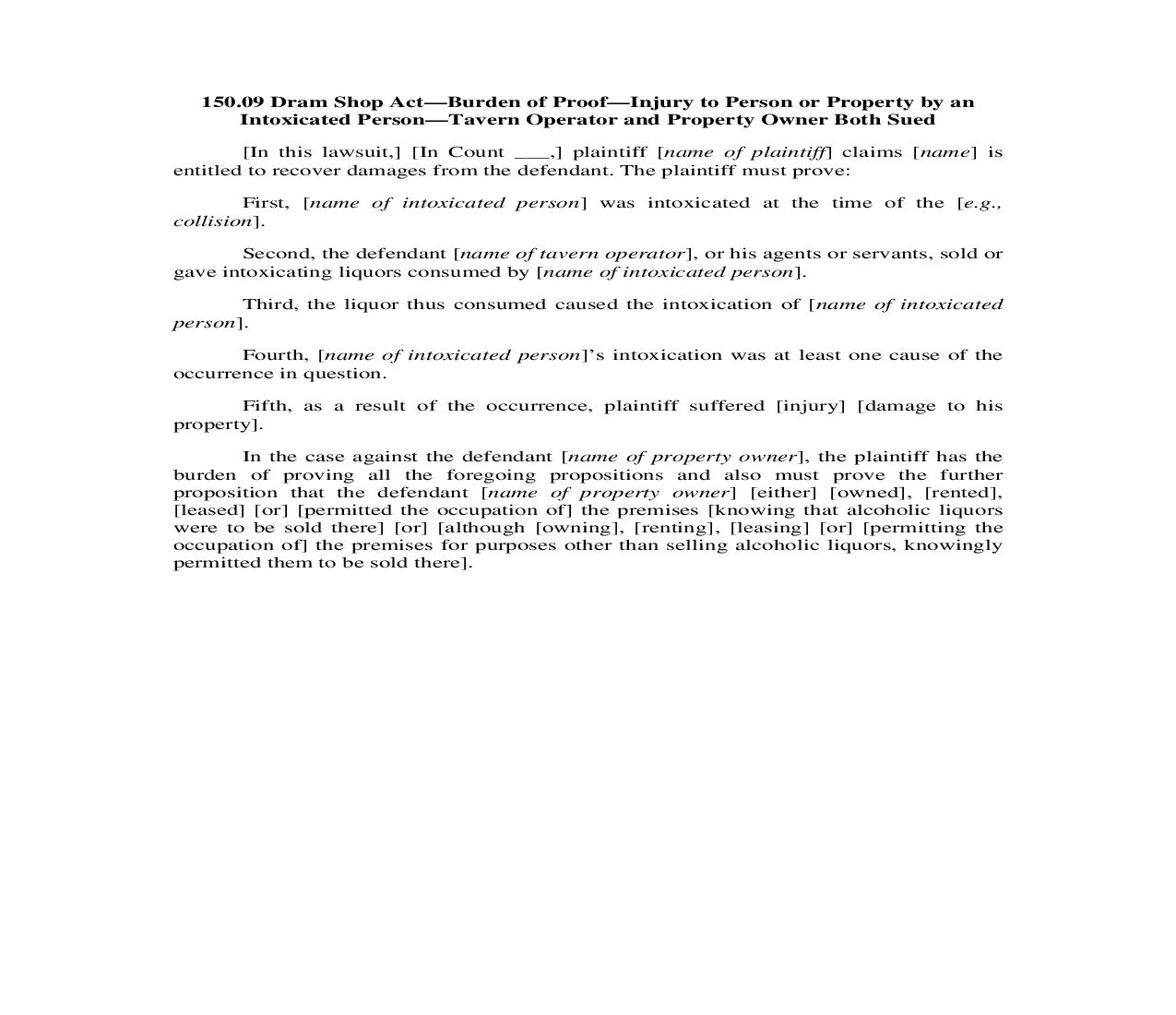
Last updated: 6/3/2014
150.09. Dram Shop Act-Burden of Proof-Injury to Person Property by Intoxicated-Tavern Op. Prop. Owner Sued
Start Your Free Trial $ 5.99What you get:
- Instant access to fillable Microsoft Word or PDF forms.
- Minimize the risk of using outdated forms and eliminate rejected fillings.
- Largest forms database in the USA with more than 80,000 federal, state and agency forms.
- Download, edit, auto-fill multiple forms at once in MS Word using our Forms Workflow Ribbon
- Trusted by 1,000s of Attorneys and Legal Professionals
Description
150.09 Dram Shop Act--Burden of Proof--Injury to Person or Property by an Intoxicated Person--Tavern Operator and Property Owner Both Sued [In this lawsuit,] [In Count ___,] plaintiff [name of plaintiff] claims [name] is entitled to recover damages from the defendant. The plaintiff must prove: First, [name of intoxicated person] was intoxicated at the time of the [e.g., collision]. Second, the defendant [name of tavern operator], or his agents or servants, sold or gave intoxicating liquors consumed by [name of intoxicated person]. Third, the liquor thus consumed caused the intoxication of [name of intoxicated person]. Fourth, [name of intoxicated person]'s intoxication was at least one cause of the occurrence in question. Fifth, as a result of the occurrence, plaintiff suffered [injury] [damage to his property]. In the case against the defendant [name of property owner], the plaintiff has the burden of proving all the foregoing propositions and also must prove the further proposition that the defendant [name of property owner] [either] [owned], [rented], [leased] [or] [permitted the occupation of] the premises [knowing that alcoholic liquors were to be sold there] [or] [although [owning], [renting], [leasing] [or] [permitting the occupation of] the premises for purposes other than selling alcoholic liquors, knowingly permitted them to be sold there].







